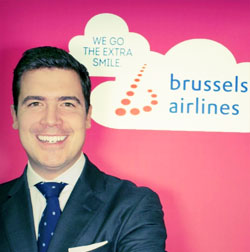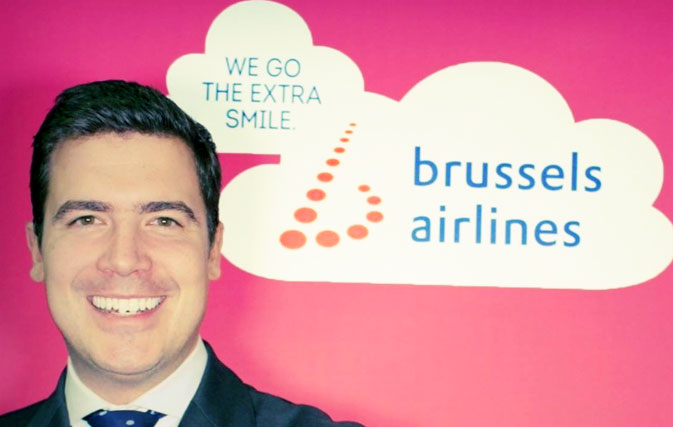 It’s been a tough few months for Brussels, which is still trying to cope with the aftermath of terror attacks that occurred on March 22. Brussels Airlines, Belgium’s national carrier, was severely impacted following a brief closure of Brussels airport. But according to Christophe Allard, Director North America for Brussels Airlines, the airline hasn’t faltered and, in fact, continues to thrive, with a brand new Toronto service and an upcoming fleet expansion. He tells Travelweek what else the airline has in store in this edition of Friday FIVE.
It’s been a tough few months for Brussels, which is still trying to cope with the aftermath of terror attacks that occurred on March 22. Brussels Airlines, Belgium’s national carrier, was severely impacted following a brief closure of Brussels airport. But according to Christophe Allard, Director North America for Brussels Airlines, the airline hasn’t faltered and, in fact, continues to thrive, with a brand new Toronto service and an upcoming fleet expansion. He tells Travelweek what else the airline has in store in this edition of Friday FIVE.
We recently reported that Lufthansa may be acquiring Brussels Airlines’ parent company, SN Airholding. What’s the status on the acquisition, and if it goes through, how would it affect the airline?
Lufthansa bought 45% of the shares in 2008 and still has the option to buy the remaining shares, which they now will do. It’s important that a win-win situation can be achieved, with SN bringing to the table its important Brussels market, its African expertise, and its hybrid business model that allows the Belgian airline to compete with the tough low cost competition (ie. Ryanair, Vueling, EasyJet) in Belgium. Last but not least, Brussels Airlines has, for the last few years, very much reinforced its brand in Belgium and Africa. Due to the events of March 22, both SN and LH management have decided to postpone any decision on a possible call for the remaining 55%, as the priority for the SN management is to first get the Belgian company and its hub back to normal operations.
Brussels Airlines recently debuted new service to Toronto. How have bookings been so far, and are there plans to launch new Canadian gateways?
We are very satisfied with the first results, especially in terms of connecting (via Brussels and via Toronto). Seat Load Factor is very high and 15% of the traffic connects via Brussels to our African network. Also, 35% of the bookings are for travel beyond Toronto (to Canada and the U.S.), proving that we successfully positioned Toronto as our primary year-round hub in North America through an extensive codeshare agreement with Air Canada to Canada and the U.S. While remaining cautious, we are optimistic about the future evolution of this new route. We don’t have any plans yet to open a new Canadian gateway, but together with our joint venture partners, we’re keeping our eyes open for new opportunities.
Why did the airline choose Toronto as its first Canadian gateway?
We chose Toronto for its market potential, point-to-point and beyond (connections with Africa), also because of our partnership with Air Canada. In addition, after JetAirways left Brussels, we seized the opportunity to take over their Brussels-Toronto operations.
The new service was briefly delayed due to the closure of Brussels airport following the recent terror attacks. Are any of your flights still being affected? What do you want travel agents and travellers to know about current operations at Brussels airport?
Capacity is now at 95%. There are no queues anymore, with pre-check done via a sort of profiling. Brussels Airport is also working on a departure hall in the future. There is no change whatsoever for connecting passengers.
What’s new for the airline in 2016 and beyond?
We’re constantly reviewing product and service offers for the benefit of our guests. The Suite, our newest lounges in Brussels and Kinshasa (which is our first out-station lounge) has just opened. Also, we’re currently offering €39 fares for one-way flights in Europe. After our award-winning business class, we now offer economy plus, as of July 1. And in terms of network expansion on long-haul flights, we have 10 Airbus A330 entering our fleet beginning next year. We are also currently investigating which new destinations to open, with Mumbai and Lagos on the radar.

